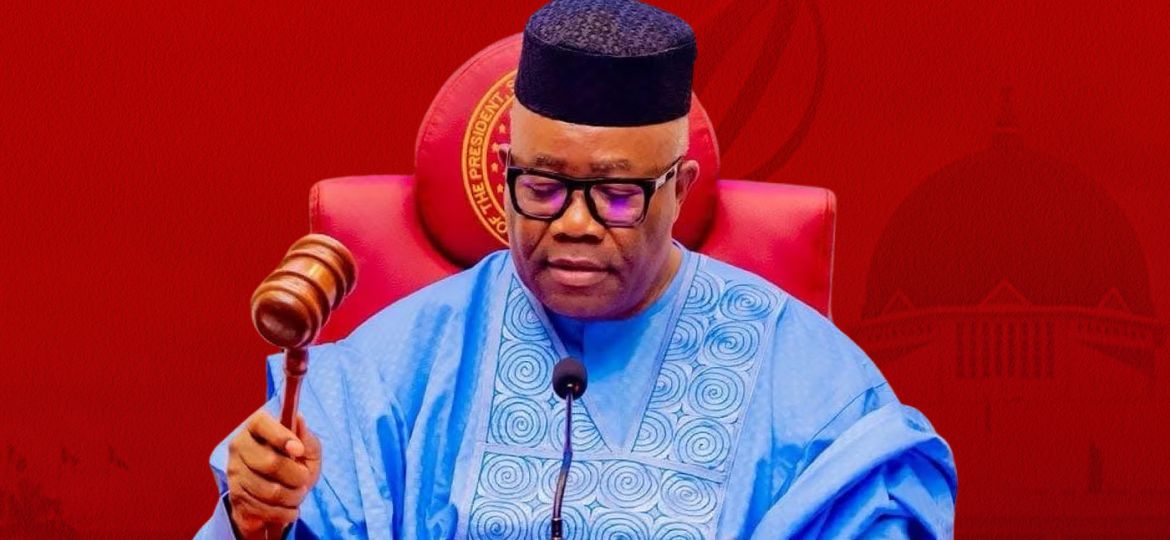
In Nigeria’s ever-evolving political landscape—where partisanship, media noise, and personality-driven narratives often dominate—the 10th National Assembly under the leadership of Senate President Godswill Akpabio is charting a different course. Beyond the clamor of daily politics, a new era of legislative governance is emerging—one rooted in stability, transparency, and results-oriented leadership.
From Rhetoric to Reform: The Akpabio Legislative Vision
Since assuming the mantle of leadership, Senator Akpabio has anchored the Senate’s agenda on three pillars: stability, collaboration, and tangible impact. His philosophy is clear—the legislature must evolve from being a reactive institution to a proactive engine of national transformation.
Unlike traditional political leadership that prioritizes visibility over value, Akpabio’s approach is pragmatic. His emphasis is on institutional strength rather than personal acclaim, ensuring that the Senate’s contributions outlive any single administration.
Strategic Reforms Defining the 10th Assembly
Under his stewardship, the Senate has been quietly but steadily executing strategic reforms designed to modernize legislative practice and drive national progress. Key areas of focus include:
- Bipartisan Collaboration: In a politically diverse chamber, Akpabio has prioritized unity over division—building bridges that enable consensus on critical national issues. This renewed sense of cooperation has accelerated the passage of bills vital to Nigeria’s economic and social stability.
- Economic Legislation: The 10th Assembly has prioritized bills aimed at economic diversification, investment attraction, and business ease. This legislative direction supports the transition from resource dependency to value-driven growth—positioning Nigeria for sustainable development in an increasingly competitive global economy.
- Enhanced Oversight: Recognizing the legislature’s watchdog role, Akpabio has revitalized the Senate’s oversight functions. Committees are now more proactive in ensuring fiscal discipline, transparency, and measurable outcomes across Ministries, Departments, and Agencies (MDAs).
- Transparency and Public Engagement: The Senate under Akpabio has strengthened mechanisms for open governance, improving public access to proceedings and fostering citizen participation in the legislative process.
Driving Economic Resilience and Institutional Renewal
One of the hallmarks of Akpabio’s leadership is a strong focus on economic stabilization and governance efficiency. Through fiscal reforms and the reinforcement of revenue laws, the Senate has contributed to increasing accruals to the Consolidated Revenue Fund—translating into improved allocations for states and enhanced capacity for public service delivery.
The Assembly is also advancing constitutional amendments—from state creation and boundary adjustments to devolution of powers—through broad-based public consultations and stakeholder engagements. These efforts demonstrate a commitment to responsive governance that reflects the aspirations of the people.
Beyond Politics: Building a Legacy of Governance Excellence
Akpabio’s brand of leadership redefines what legislative stewardship should represent in a maturing democracy. His focus is not on political theatre but on institutional continuity—building a Senate that is collaborative, forward-looking, and structurally resilient.
By nurturing cross-party relationships and championing developmental legislation, he is helping to reposition the National Assembly as a credible partner in governance, rather than a mere observer of the executive. The ongoing harmony among lawmakers—evident in bipartisan support for key national initiatives—signals a new culture of unity anchored in shared purpose.
Conclusion: A Legacy Beyond Tenure
Leadership in public service is transient; legacy is permanent. Senator Godswill Akpabio’s approach underscores that true leadership is not defined by the noise surrounding it, but by the enduring institutions it builds.
As the 10th National Assembly continues to evolve under his watch, one thing becomes clear: a new legislative order is taking shape—disciplined, developmental, and deeply committed to national renewal.
In time, this chapter may well be remembered as the moment when Nigeria’s Senate moved beyond rhetoric to reform, beyond politics to progress, and beyond noise to nation-building.

